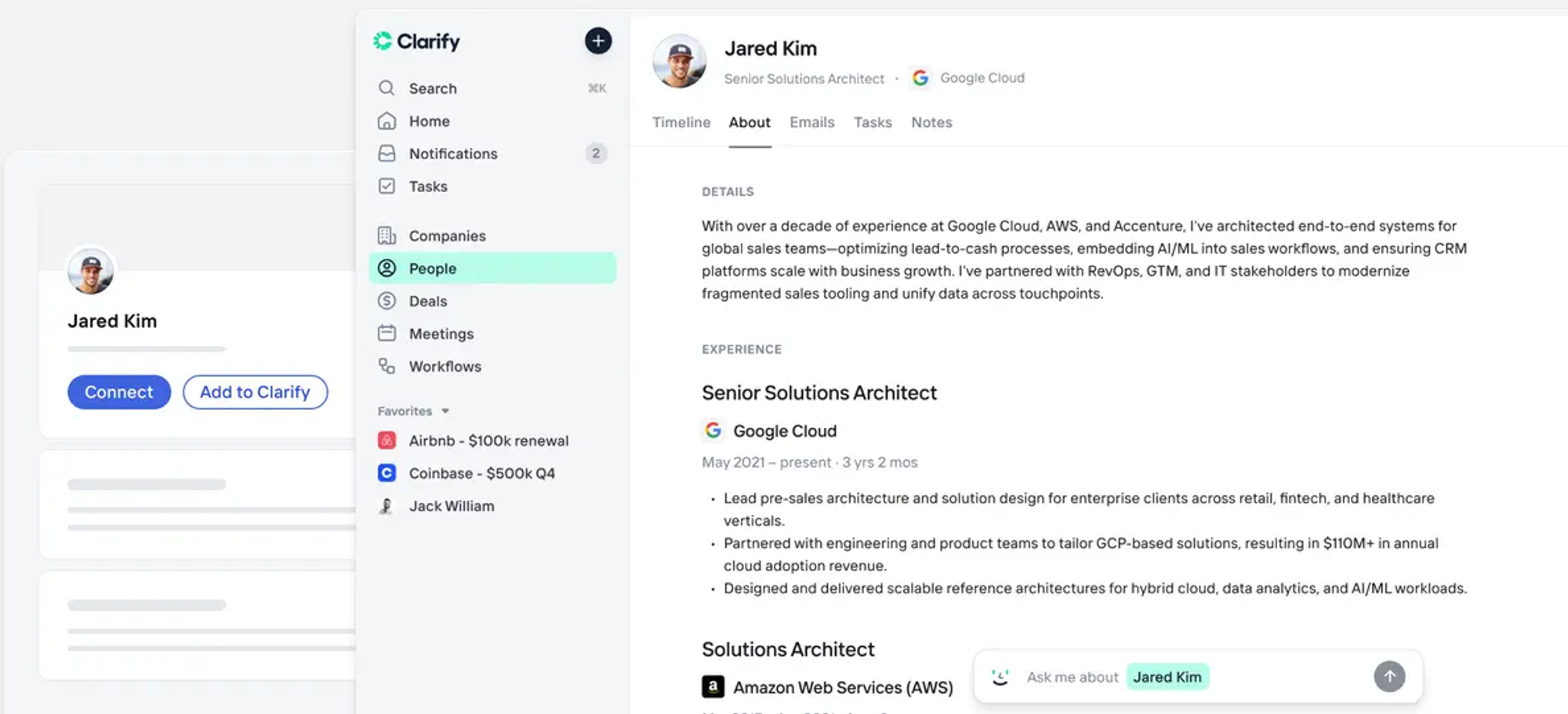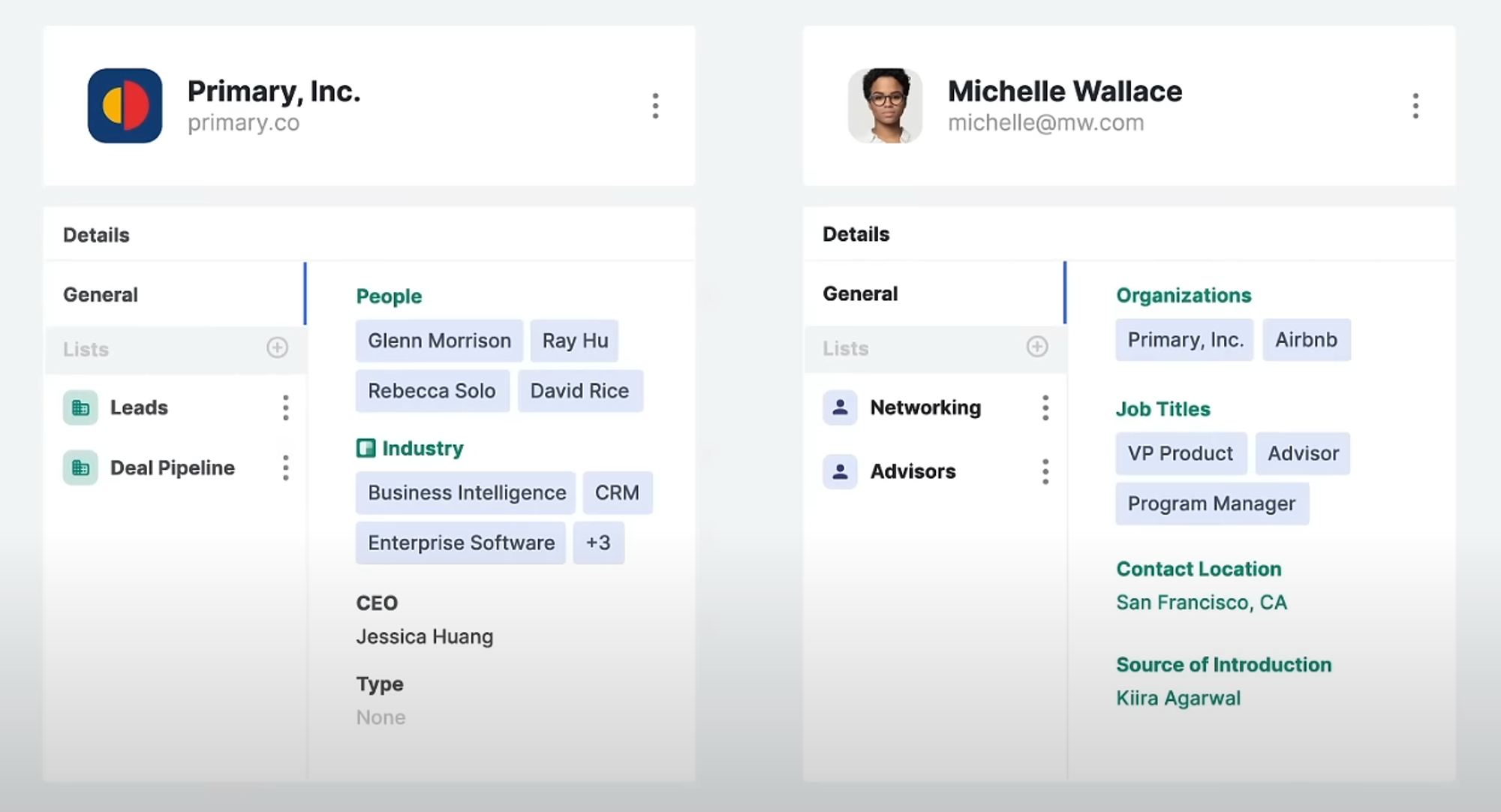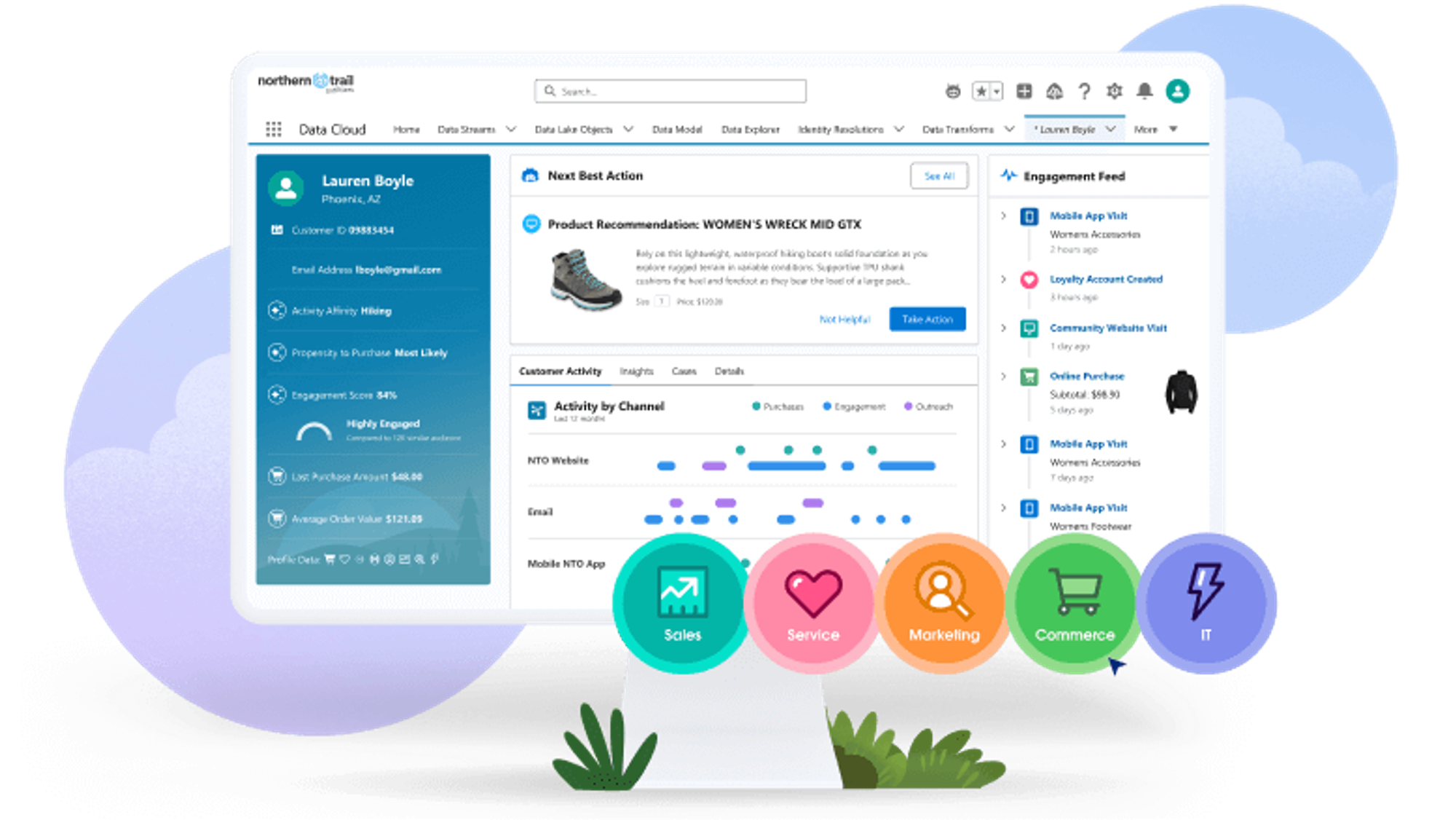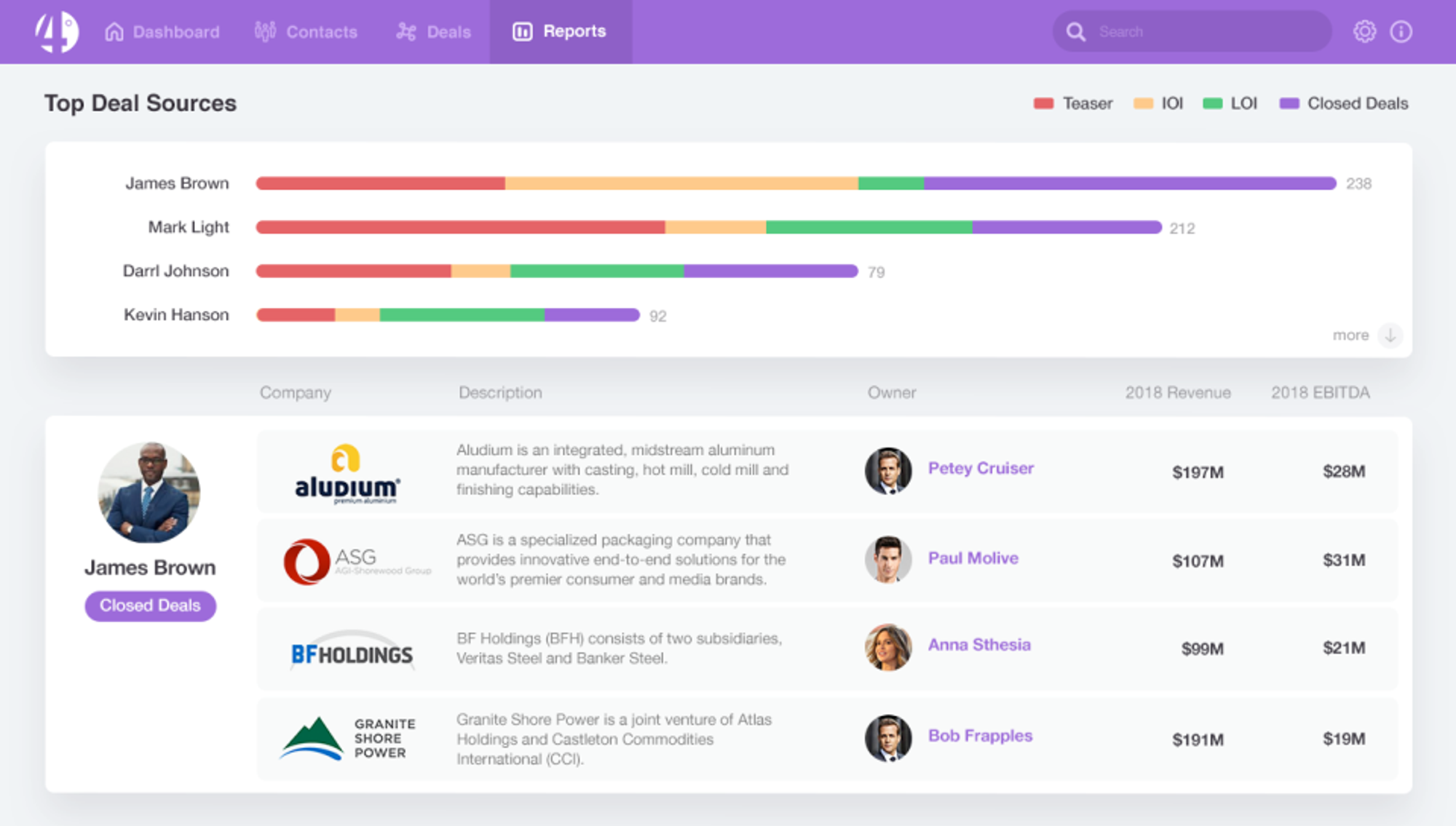

There’s a fascinating duality to how VC firms operate. Some parts of finding, evaluating, and closing a deal demand hours of structured research, analysis, and outreach that follow precise models. Others feel almost improvised: contact info scribbled on napkins, spontaneous meetups, and handshakes at late-night conference after-parties.
These two approaches can feel like completely different worlds, separated by a ravine. The right CRM platform, though, brings the two together, serving as a single place for tracking, reviewing, and empowering all your efforts. It keeps everyone in the loop and ensures you never miss your next big deal.
Here are the top six CRM platforms for VCs.
The top 6 VC CRM solutions compared
| Platform | Starting price | Free plan? | Free trial? | AI Readiness | Best for |
| Clarify | Paid plans start at $20 a month. | ✅Yes | ✅Free plan | ✅AI-Native | Automating your pipeline, follow-up work, and deal capture. |
| Affinity | $2,000 per user per year. | ❌No | ❌No | ⚠Limited | Medium and large VC firms. |
| Salesforce | $25 per user, per month. | ❌No | ✅30 days | ⚠Via Einstein | Large, multi-fund firms that need a fully customizable CRM. |
| Pipedrive | $24 per user, per month. | ❌No | ✅14 days | ⚠Limited | VC firms with smaller budgets. |
| 4Degrees | Custom pricing. | ❌No | ❌No | ❌None | Teams that need relationship intelligence above everything else. |
| Folk | $25 per user, per month. | ❌No | ✅14 days | ❌None | Micro-funds that need a simple, minimalist option. |
Clarify: Leading autonomous CRM

Clarify is an AI-native, autonomous CRM. Think of it like a copilot for everything from founder relations to deal pipeline management and meeting admin. It automates the manual, administrative work that’s often rampant in VBC, as well as helping you prep for calls, enrich leads, and manage follow-up work. Here’s what Clarify can do for your VC firm:
- Automatically creating and updating deals from emails and meetings.
- Record and transcribe meetings with citations.
- Automatically generates follow-ups and next steps.
- Adapts to your data, learning over time.
- And a lot more.
You can use Clarify’s free plan forever, with unlimited seats. You’re limited to 2,500 credits a month. Clarify’s Starter plan, at $20 a month, gives you 5,000 credits a month, and you can work with their team for additional credit packages. Growth plans have custom pricing, custom credit packages, and Clarify’s most advanced AI features.
Want to see what Clarify can do for your pipeline? Start using it for free.
Affinity: Purpose-built CRM for VCs

Affinity is a CRM built specifically for VC needs. It’s used by firms like BlackRock, Atlanta, Motive Partners, and Bessemer Venture Partners to manage deal pipelines, make better decisions, and automatically enrich leads. Its patented relationship intelligence technology makes it one of the strongest options on the market for VC firms.
Affinity’s strengths
- Automatic data capture from emails and meetings.
- Network visualization and pathing for warm intros.
- Deep integrations with tools like Salesforce, Slack, Mailchimp, and more.
- Specialized deal flow tracking.
Affinity’s limitations
- Premium pricing puts Affinity out of reach for smaller firms.
- Affinity has a steeper learning curve than some other CRMs.
- Limited customization without a developer.
Affinity’s pricing
Affinity’s plans are paid yearly, with no option for a monthly subscription:
- The Essential plan, at $2,000 per user, per year, gives you automated activity capture, relationship scoring, complete historical interaction context, and basic deal pipeline management.
- At $2,300 per user, per year, the Scale plan adds Chrome and email extensions for deal sourcing, enhanced relationship intelligence, deal velocity and conversion analytics, and mobile access.
- The Advanced plan is $2,700 per user, per year, and adds AI-powered meeting intelligence, scaled email communication and tracking, AI-powered alternative data research, and premium data enrichment.
- Finally, the Enterprise plan has custom pricing and includes SSO authentication, granular data controls, custom data governance, and full API access.
Affinity doesn’t offer a free plan or a free trial.
Salesforce: The enterprise player

Salesforce was one of the first CRMs on the market and a pioneer in the SaaS world. Think of Salesforce as the Microsoft of the CRM world; practically the default for large organizations. That typically means other CRM platforms are either trying to outcompete Salesforce in aspects in which it doesn’t succeed or trying to imitate it.
Salesforce’s strengths
- Fully customizable.
- Massive integration and app ecosystem.
- Advanced reporting and dashboards.
Salesforce’s limitations
- Overkill for smaller VC firms.
- Just implementing Salesforce can be a significant investment.
- Implementation can take weeks or months.
Salesforce’s pricing
Salesforce’s CRM has four plans:
- Salesforce Starter is $25 per user, per month, and lets you manage leads, accounts, contacts, and opportunities. You also get built-in sales flows and lead routing.
- Salesforce Pro is $100 per user, per month, and adds deeper customization and automation, sales quoting and forecasting, and access to AppExchange.
- The Enterprise and Unlimited plans are also available, though they’re customized specifically for your needs after a conversation with Salesforce’s sales team.
Salesforce offers a free 30-day trial.
Pipedrive: Visual deal flow for VCs

Pipedrive is a sales-focused CRM that looks and feels like you’re moving Post-Its on a whiteboard. That simple aesthetic belies a host of AI-powered features that make your life as a VC easier, whether you’re sourcing potential deals or preparing for your next meeting.
Pipedrive’s strengths
- Drag-and-drop visual pipeline.
- Solid mobile app.
- Large template and integration library for a quick setup.
Pipedrive’s limitations
- Not purpose-built for VC.
- No relationship intelligence.
- Requires more manual data entry than other options.
Pipedrive’s pricing
Pipedrive offers four paid plans:
- The Lite plan is $24 per user, per month, giving you access to lead, calendar, and pipeline management. You’ll also get over 500 integrations, a real-time sales feed, and AI-powered reports.
- The Growth plan is $49 per user, per month, and adds automations, nurturing sequences, forecast reports, a meeting scheduler, and more.
- The Premium plan is $79 per user, per month, adding lead generation and routing, e-signatures, company data enrichment, stronger customization, and more.
- The Ultimate plan, at $99 per user, per month, adds better account security, phone and email data enrichment, maximum usage limits, and a sandbox testing account.
Pipedrive offers a free 14-day trial.
4Degrees: The relationship intelligence CRM

If you want a CRM that prioritizes relationship intelligence and was built by ex-investors, then 4Degrees may be the platform for you. It’s used by teams at Google, Augment Ventures, and Techstars to turn networks into deals.
4Degrees’ strengths
- Built for VC by ex-investors.
- Relationship-focused design philosophy.
- Focus on warm introductions and networking opportunities.
4Degrees’ limitations
- Lackluster deal pipeline management compared to other options.
- Limited portfolio management capabilities.
- Smaller integration library than competitors.
4Degrees’ pricing
4Degrees pricing isn’t available online. You’ll need to get in touch with their sales team to get a quote.
Folk: The simple, no frills option

If you’re running a micro-fund and need the simplest CRM option for capturing contacts and tracking your pipeline, Folk is a strong choice. Think of it like an assistant you can turn to, no matter where you are on the web, to instantly get the contact information you need for your next deal.
Folk’s strengths
- Intuitive, with quick onboarding and implementation.
- Minimalist and easy to use.
- Chrome extension for quick contact capture.
Folk’s limitations
- No sophisticated pipeline management.
- Limited reporting and analytics.
- Involves more manual work than other options.
Folk’s pricing
Folk offers three plans:
- The Standard plan is $25 per member, per month. It includes pipeline management, email campaigns, contact enrichment, AI-filled fields, a LinkedIn extension, and more.
- The Premium plan is $50 per member, per month. It adds custom objects, deal management, email sequences, dashboards, API access, and more.
- The Custom plan starts at $100 per member per month, and lets you build a plan with custom limits, custom billing, and a dedicated point of contact.
Folk doesn’t offer a free plan, but it does offer a free 14-day trial.
Why CRMs are essential in venture capital
In venture capital, just like any other industry, a CRM platform streamlines processes, helps you manage important relationships, and gives you better data for every decision. By consolidating information about investments, potential leads, and existing relationships, a robust CRM helps VC professionals focus on strategy and growth rather than manually enriching leads.
The role of a CRM in venture capital
The main role of your CRM is to centralize data related to your portfolio, investors, and potential investments. Whether you’re looking for contact information for a specific founder, trying to find the best way to get an introduction to an investor, or analyzing your performance across outreach efforts, a CRM quickly becomes the first place you check.
A CRM can also help you identify trends in existing deals and future ones, facilitate follow-ups, and nurture relationships over time. All essential tasks in a field where personal connections lead to successful investments.
A robust platform also allows you to segment contacts based on various criteria, like investment stage or industry focus, allowing you to tailor your communications and engagement strategies, ensuring they’re always relevant and timely.
What to look for in a CRM for venture capital
When evaluating any software platform, you’re looking for something that fits your particular needs. That’s especially true in venture capital. Prioritize the following to make sure your CRM meets your firm’s expectations:
- Relationship intelligence: Networking is essential for finding and closing VC deals, and your CRM should connect the dots between deals, contacts, and more to represent that.
- Deal tracking: Look for CRMs that allow detailed tracking of potential deals and investment stages.
- Investor Management: The ability to manage relationships with current and prospective investors is crucial.
- Reporting and Analytics: Advanced reporting features can help in assessing performance and identifying successful investment strategies.
- AI features: Automated contact enrichment, AI-driven insights, and automatic next-steps can help accelerate the administrative work that comes with managing VC deals.
- User-friendly interface: Your VCs shouldn’t need an engineering background to use your CRM. Something you can deploy and train people on quickly is essential.
- Customizability: Some CRMs are rigid, with simple features, making them ill-suited to VC deal flows. Look for a CRM with some customizability so you can tailor it to your needs.
What to consider when evaluating a CRM solution
Choosing the right CRM goes beyond just making sure it has the right features. Here are key considerations you need to factor into your decision-making process.
Price (and value for money)
Cost is always a consideration when choosing a CRM, but it goes beyond just comparing the actual dollar cost of each one. A CRM that costs $20 a month is built for a very different firm than one that costs $2,000 a month. It’s not just about budget; it’s about all the assumptions that go into pricing a CRM at each of these levels, and whether those work in your favor or not. For example, an expensive CRM like Affinity often requires an extensive implementation process, with additional costs like consultants and developers to customize it fully to your needs. For a smaller firm used to moving quickly, this CRM wouldn’t be a great fit.
You also need to consider a CRM’s pricing model. Some CRMs charge based on the number of seats, which can keep them relatively cheap when you start, but they’ll get expensive quickly. Others charge based on the number of contacts you have, which gets even more expensive.
A CRM like Clarify, which charges a flat fee based on how much you get out of it, can make your CRM cost more predictable and give you more value for your dollar.
Integration capabilities
Integrations are more than just a feature: they’re essential. Your CRM needs to pull contact, deal, and company data—and enrich it—to be useful. If it doesn’t connect natively with the tools you’re using, you’ll have to compensate with a ton of manual work. That can easily lead to it creating more work for you than it saves.
While each VC firm’s integration needs are unique, you should generally look for the following integrations:
- Contact management tools like Google Contacts.
- Meeting tools like Microsoft Teams or Zoom.
- Data analytics tools like Tableau or Power BI.
- Email platforms like Gmail or Outlook.
- Financial modeling software like Cube or Quantrix.
Having the right integrations can turn your CRM into a hub for all the data you need to successfully source and close deals.
Pilot project suitability
With a pilot project, you deploy a potential CRM to a small portion of your team or use it exclusively for a subset of existing deals as a test. With the right metrics and the right approach, this pilot project can help you figure out how suited a CRM is to your team’s needs. You might discover that features you thought were just nice-to-haves are actually must-haves, or that an important integration doesn’t perform the way you expect.
CRMs like Salesforce and Affinity can be more difficult to pilot effectively without significant help from a sales or customer success team, because they’re more expensive and difficult to implement. A CRM built with smaller, agile VC firms in mind, like Clarify, is easier to run pilot projects with.
If you’re new to using CRMs and you need extensive testing to make sure you get the right one, look at CRMs that are easy to deploy and use.
Choose the leading autonomous CRM on the market: Choose Clarify
A CRM should do two things: centralize the information you need to close more VC deals and eliminate the manual work involved with getting to a closed deal. As an AI-native CRM, Clarify gives you the best of both worlds.
With Clarify, you get a CRM that automatically finds and captures qualified deals no matter where you work. AI-powered automation makes everything from enriching contacts to transcribing meetings and automating follow-up work simple. You also get deep analytics and detailed reporting, so you can tailor your strategy so you’re always sourcing the best deals.
Want to see what Clarify can do for your VC firm? Start using Clarify for free.
Get our newsletter
Subscribe for weekly essays on GTM, RevTech, and Clarify’s latest updates.
Thanks for subscribing! We'll send only our best stuff. Your information will not be shared and you can unsubscribe at any time.